![]() The information provided by our expert should not constitute a diagnosis of your condition. Always consult a medical practitioner or healthcare provider for a formal diagnosis. By making use of this content, you agree that ConceiveEasy and the expert assume no liability.
The information provided by our expert should not constitute a diagnosis of your condition. Always consult a medical practitioner or healthcare provider for a formal diagnosis. By making use of this content, you agree that ConceiveEasy and the expert assume no liability.
When you started embarking on your TTC (aka ‘trying to conceive’) journey, you did everything you possibly could to maximize your chances of conceiving. Claim Your 20 Free Pregnancy Tests – Click Here
You and your partner saw the doctor and you lost weight so you would end up in a weight range that was optimal for conceiving.
Your partner quit taking piping hot showers and started to take quick lukewarm showers. He ditched the briefs and jeans and started to wear boxers and loose-fitting pants.
Both of you ate foods that were fertility friendly, and when you charted your cycles, you knew exactly when you were ovulating and had intercourse at the best possible times.
Both you and your partner are under 30 years of age, which is not a huge deal for your partner but for you it is.
You have been taking folic acid supplements as well as prenatal vitamins, and your partner has been taking supplements as well to help improve his fertility.
You and your partner quit smoking a long time ago, and haven’t done any kind of recreational drugs at all.
You stopped enjoying that glass of wine at dinner a long, long time ago!
You are getting a moderate amount of exercise as both you and your partner have been taking half-hour walks 5 days a week after dinner.
You and your partner have also taken up yoga and meditation classes.
You both are doing what you can to reduce stress, and you have been doing this since day one.
Needless to say, you have been doing everything possible to increase your chances of conceiving.
And yet, well over a year later, after trying to conceive for that long you still have not achieved a pregnancy.
Right after that one-year mark has approached, both you and your partner went to the doctor to find out why you are unable to get pregnant. You were referred to a fertility specialist who examined both of you thoroughly.
It was confirmed that your hormone levels are just fine and that you do ovulate regularly. Your partner’s sperm count, quality, and mobility levels were great. This all means that there really is no reason at all that you have been unable to conceive.
However, given this fact, what you and your partner are dealing with is something a lot worse than an infertile couple who knows why they are infertile… and that is unexplained infertility.

In a nutshell, unexplained infertility is when a healthy couple who has been trying for a year or more to conceive and has not been able to when there is no indication of why they are infertile.
Before being given a diagnosis of unexplained infertility, your doctor would have done a thorough check up on you and your partner.
You would have been monitored through blood work and ultrasound for ovulation.
Your luteal phase would have been monitored which is the time between ovulation and when you get your period.
If there is an issue with that, it would have been short due to low progesterone levels which would have meant the embryo would not implant.
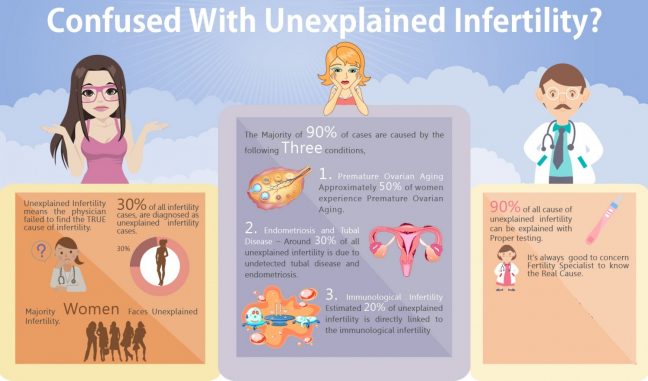
But again, if there would have been an issue with your luteal phase then you would know and that is not what having unexplained infertility would be about.
You would have had every test to determine the cause of your infertility.
Your reproductive organs have been determined to be fine and there is nothing structurally wrong. Your tubes have been found to be wide open.
You have not been eating foods that could cause you to be infertile. If anything you are sticking to the fertility friendly diet.
You’ve ditched every bad habit that you can think of.
The same applies to your partner. His semen analysis has always come up as normal. But you still cannot conceive. And don’t get the terms unexplained infertility confused with idiopathic infertility.

Even though the term idiopathic means unexplained, there is a huge difference between unexplained infertility and idiopathic infertility. Idiopathic infertility means that the cause of infertility in the patient has been determined, however, the reason behind the patient being infertile is not known.
Therefore, in a case of male idiopathic infertility, there is an indication that the man is infertile because of having an abnormal semen analysis.
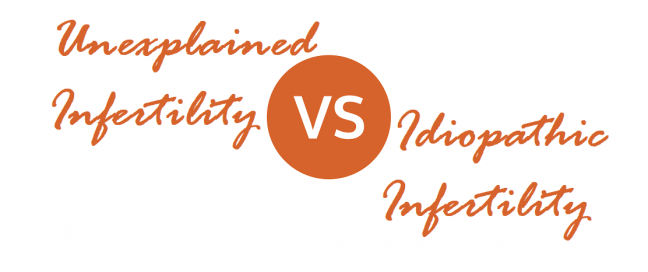
However, the reason behind the poor sperm count, quality and mobility are not known. Even though the man may be doing everything he could to maximize his chances of getting his partner pregnant by eating fertility friendly foods and sticking to good habits, as well as wearing briefs and loose-fitting pants, and not staying in even lukewarm showers for that long.
There is also no sign of trauma in the area, and both testicles are descended, his hormone levels are fine, and he is healthy- yet the analyses of his semen samples keep coming up as abnormal and there is no reason why that could be.
Then there is idiopathic female infertility.
Idiopathic female infertility and that happens whenever it is known that the woman is not ovulating properly, however, the cause for anovulation and irregular cycles are not determined.
Sometimes even if a woman doesn’t have the typical signs of polycystic ovarian syndrome (PCOS), which are higher testosterone levels, obesity, high insulin levels, ovarian cysts, facial or body hair and acne – it is possible that the woman may have the condition due to the fact that she is not ovulating properly alone.
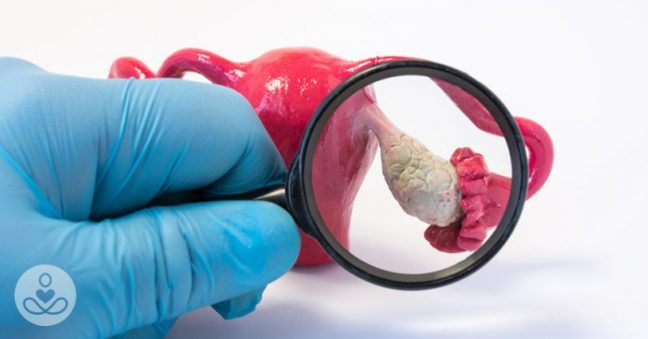
However, again, it is not conclusive that is the reason behind the anovulation. Therefore, even though it is known that the woman is not ovulating at all or regularly, the cause of it is still for the most part unknown. That is a case right there of idiopathic female infertility.
However, in a case with unexplained infertility, the woman is ovulating properly and the man has had normal semen analyses. That is the difference between the two.

Even though with unexplained infertility doctors have run out of answers as far as the cause of infertility, there could still be some underlying causes for infertility that are not easily determined. Let’s examine these:

Celiac disease is an autoimmune disease where the small intestine becomes destroyed by gluten, and sometimes there are no symptoms of it. However, there is a substantial amount of nutrient loss which will affect fertility. However, if you have been having unexplained infertility, and you are asymptomatic as far as celiac disease is concerned, you need to get tested. If so, then if you stick to gluten-free foods, then you very well could conceive!

If there is no blockage determined by endometriosis, and there is no proof that you have the condition in the first place- you can’t assume that you don’t have it even though you may not feel pain or have any blockages. However, it is best to have yourself thoroughly examined just in case this could be an issue that is causing your infertility.

Even though there are times when antibodies in the cervical mucus kill off sperm which is referred to hostile cervical mucus- this falls more into the idiopathic infertility category because of the fact the determination has been made as to why pregnancy has not been able to occur. However at the same time, the cause for this issue cannot be determined.
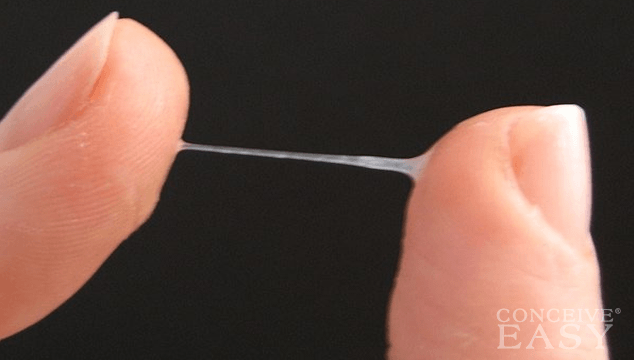
Additionally, there may be other issues that are getting in the way during the time the sperm makes contact with the cervical mucus. Then it would have determined that there are no antibodies killing off the sperm. That would be behind unexplained infertility. Because if the cervical mucus is not interacting well with the sperm otherwise, the question is why?

There is no test to determine if the quality of the woman’s eggs are good unless she has them retrieved and the determination is made during IVF. In most cases, age is a cause for poor egg quality or women who have premature ovarian failure- but those would have been determined. Sometimes a young woman can have poor egg quality for unknown reasons.

If the sperm appears to be healthy, moving well and of good quality, that does not mean that there are no issues with the DNA. This could be a cause for infertility.
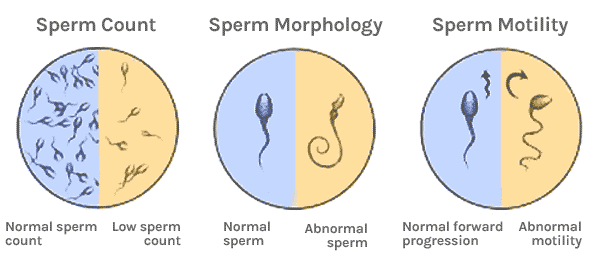

Sometimes there are problems with the endometrium that are not detectable which would prevent an embryo from attaching properly and implanting. In fact, there was a virus recently discovered that causes this problem to happen but there is no way to treat it yet so far.

Sometimes even when the sperm and egg unite, the embryo forms but the cell division stops along the way. The only way to determine this as an issue is through IVF.
These are just some possibilities that may be behind unexplained infertility. However, if you and your partner have been diagnosed with unexplained infertility, don’t lose hope. There are ways of conceiving. Here are some methods that have helped couples who were diagnosed with unexplained infertility conceive:

Many couples who have had been diagnosed with unexplained infertility have been successfully able to conceive with a combination of intrauterine insemination (IUI) and fertility drugs or Clomid in order to time the ovulation. It may be likely that the reason that these couples have been successful is that the cervical mucus was killing off the sperm for unknown reasons.
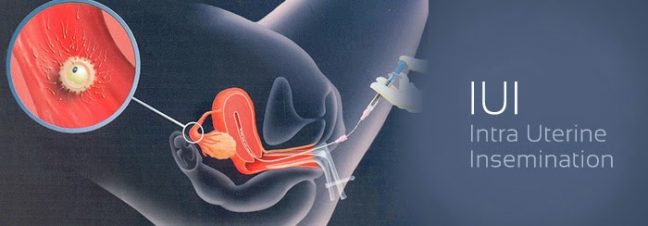

The odds of achieving a pregnancy while facing unexplained infertility while going through in vitro fertilization (IVF) is a lot higher than it is with IUI. That is because of many factors. The first one is that while the egg is being fertilized with the sperm, the division of the embryo can be watched before the transfer is made. If it has been found that the embryos are not dividing properly, then that would be the reason that pregnancy has not been able to happen.
In this situation, the embryos would have to be screened before being transferred and this method of IVF is called preimplantation genetic screening. Sometimes the cause for this is that you or your partner may have a chromosomal translocation without even knowing beforehand. This way, the healthy embryos would be transferred back and the unhealthy ones would be discarded or donated to research.
When it comes to poor egg quality or poor sperm quality being the cause of not being able to conceive, then that would also be discovered during IVF. In this situation, the couple would likely opt for donor eggs or donor sperm.
So that being said, if you were diagnosed with unexplained infertility, you will be dealing with a long road with expensive, invasive and grueling fertility treatments. However, at the same time, unexplained infertility is not synonymous with hopeless. More often than not, pregnancies have been achieved through unexplained infertility but there are plenty of tests involved, as well as the expense when it comes to IVF more so than even IUI.
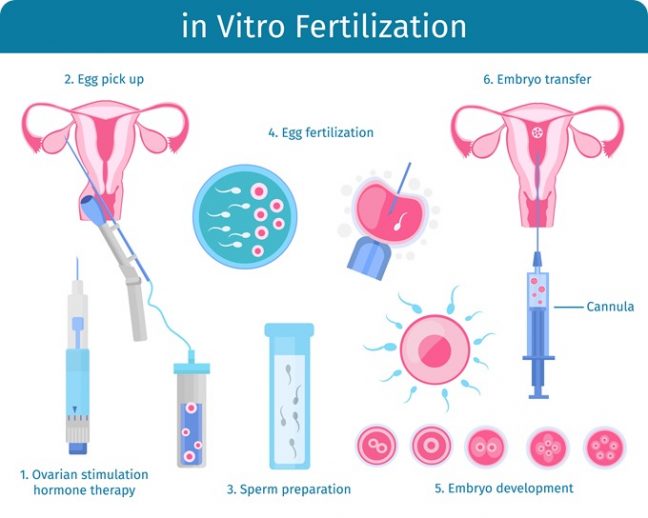
There is also that possibility that you may not be able to carry your own biological children if it has been found that embryos cannot be created due to the egg quality or sperm quality being poor.
However, if you are unable to still carry healthy embryos, then there is always that option of surrogacy. Yes, it will be even more expensive, and in that case, you will need a lawyer, but the bottom line is that nothing is ever hopeless until you have literally tried every opportunity to conceive around.
Hopefully, as time goes by, and thanks to evolving medical technology and advancement, there is a reason for optimism that better treatments will be around to treat unexplained infertility- and that the cause for unexplained infertility will be found more easily and quickly than it can be today.
However, if you have unexplained infertility, you still have options to rely on in order to help you conceive even though they are costly and invasive.










Comments